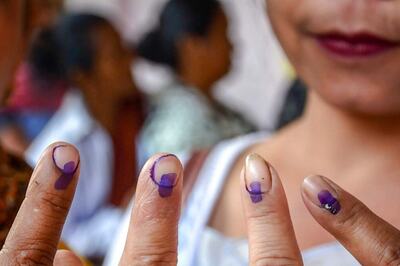
views
A year and a half after the Coronavirus pandemic wrecked our collective lives, our society has been grappling with fear and insecurity. As a result, we have seen misinformation spread like wildfire, and many resorting to bizarre and incorrect methods of dealing with the virus. With this column, which will be published every Sunday, we aim to address any health or vaccine-related question our readers might have about the coronavirus pandemic.
In this week’s column, Professor (Dr) Saurabh Varshney, Executive Director and CEO of All India Institute of Medical Sciences, Deoghar has answered questions related to hearing loss, vertigo, and other ENT-related issues caused by COVID-19.
Do those who have hearing loss due to COVID infection gain back their hearing power post-recovery? Or is it a permanent loss?
Otolaryngologists frequently see a sudden onset of sensorineural hearing loss (SSNHL). The exact pathophysiology of the disease is still unknown, with the most likely causative factor seems to be a viral infection. Immediate steroids are the best treatment to improve prognosis. Reports are suggestive that hearing loss due to covid did not get better even after the patient recovered from the infection.
The virus can travel to the brain through blood cells. Our brain has a lot of ACE2 receptors, the cell surface protein that SARS-CoV-2 uses to enter healthy cells. The brain’s temporal lobe (present on either side of the head), which controls hearing, also has plenty of ACE2 receptors. When the virus affects this area, it releases cytokines, which, in turn, damages the hearing centres in the brain.
Does COVID 19 cause vertigo? Can it impact the balance of a person?
Dizziness and vertigo are two neurological symptoms of COVID-19. The percentage of people reporting dizziness ranges from about 4 to 30 per cent. In addition, Covid-19 can impact the inner ear, leading to conditions that cause dizziness or vertigo. One such condition is vestibular neuritis.
Vestibular neuritis happens when an infection causes inflammation of the nerve that connects the inner ear to the brain. There are case reports of vestibular neuritis during or shortly after COVID-19.
These are the reasons why COVID-19 causes these symptoms: the effects of inflammation from the infection, a direct viral infection of nerve tissues, damage to nerve tissue from reduced oxygen (hypoxia) or injury related to increased blood clotting (hyper-coagulopathy)
Have the cases of black fungus gone down after the second wave? How is delta affecting ENT functions?
Over 45,000 cases of Mucormycosis or ‘Black fungus’ were reported in the country so far (MOHFW 22.07.2021), while about 4,000 patients have died due to the disease across the country. It affects the nose, eyes and sometimes the brain and usually strikes 12-18 days after recovery from Covid. Nearly half of those infected are still receiving treatment.
The fungus has a link with the steroids used to treat Covid, and diabetics are at particular risk. But they also reduce immunity and push up blood sugar levels in both diabetics and non-diabetic Covid-19 patients. It’s thought that this drop in immunity could be triggering cases of mucormycosis in diabetics or severely immunocompromised individuals, such as cancer patients or people with HIV/Aids. An anti-fungal injection (Amphotericin B) is the only drug effective against the disease, doctors say.
After a sustained decline in the number of Covid-19 cases, a significant fall in the cases of mucormycosis (black fungus) has been observed in the past few weeks.
The coronavirus variant “Delta” (also known as B.1.617.2) driving India’s devastating Covid-19 second wave is the most infectious to emerge so far. The delta variant was the “primary cause” behind the country’s deadlier second wave and is 50% more contagious than the alpha strain. Among ENT manifestations- Some Covid patients seek medical care for hearing loss, swelling around the neck and severe tonsillitis.
Why are people’s sense of smell getting altered post COVID? How does the infection affect our ability to smell correctly?
Loss of smell (Anosmia) or decreased sense of smell (Hyposmia) was observed in about 30.19% of covid cases. The incidence was higher in moderate to severe cases. Usually, it occurred between 3-5 days of infection and took 2-3 weeks to be cured. Therefore, anosmia was considered as a powerful indicator for covid suspicion in otherwise asymptomatic cases.
The first contact of the Covid virus is with nasal epithelium, which also has ACE receptors. SARS-CoV-2 requires double expression of two genes, Angiotensin-Converting Enzyme-2 (ACE2) and Transmembrane Protease Serine2 (TMPRSS2) receptors, to enter the host. ACE2 binds to viral spike protein, and TMPRSS2 facilitates priming of the S protein. Both ACE 2 and TMPRSS2 are expressed in the sustentacular cells of the human olfactory epithelium in the nose. However, in the case of asymptomatic carriers, where we do not observe a complete loss of olfaction, elevated inflammatory cytokines, or an ionic imbalance in the sustentacular cells might affect the electrical threshold producing olfactory dysfunctions of varying severity.
How to differentiate between COVID 19 and a nasal allergic reaction?
Nasal allergy is usually seasonal, with localized symptoms of- sneezing, nasal discharge, and nasal blockage. Other features may be itching of the nose, throat, eyes with a headache. Covid 19 has a systemic presentation. Therefore, the most common symptoms of COVID-19 are fever, cough, and tiredness. But there are many other possible signs and symptoms.
COVID-19 causes a system-wide response, while an allergy, which is an overreaction of the immune system in response to exposure to a trigger, is usually more localized. People with allergies may also have asthma, which can cause wheezing, coughing, and chest tightness. While many people with COVID-19 also have a cough and chest tightness or difficulty breathing, most of the time, this isn’t accompanied by wheezing. Key points that determine if one has allergies or the COVID infection are primarily the timeline and history of the patient. Often people with allergies have a history of seasonal allergies, and allergy symptoms tend to be more long-lasting than viral symptoms. Allergy symptoms usually respond to allergy medications. Allergies typically make people itchy. Itchiness is not a symptom of viral illness. Patients with allergies do not develop a fever. Often people with COVID-19 do. Patients with allergies may also have asthma, which can cause coughing, shortness of breath, chest tightness, and wheezing. COVID-19 typically does not cause wheezing.
Are there any ENT-related side effects of taking the vaccine?
No, it has not yet been reported in the literature.
What are some of the most common ENT-related long-term impacts of COVID19 on people?
Most people who have coronavirus disease 2019 (COVID-19) recover completely within a few weeks. But some people — even those who had mild versions of the disease — continue to experience symptoms after their initial recovery. These people sometimes describe themselves as “long haulers”, and the conditions have been called post-COVID-19 syndrome or “long COVID-19.” Likewise, these health issues are sometimes called post-COVID-19 conditions. They’re generally considered to be effects of COVID-19 that persist for more than four weeks after you’ve been diagnosed with the COVID-19 virus.
Older people and people with many serious medical conditions are the most likely to experience lingering COVID-19 symptoms, but even young, otherwise healthy people can feel unwell for weeks to months after infection. Common ENT signs and symptoms that linger over time include fatigue, shortness of breath or difficulty breathing, cough, loss of smell or taste, dizziness when you stand, hearing loss, sensorineural hearing loss- which is sudden in onset and may be permanent / residual, loss/ Decreased sense of smell (Anosmia/ Hyposmia)- usually reversible, but may be residual and vertigo (Sense of imbalance)- rare, reversible.
Read all the Latest News, Breaking News and Coronavirus News here.




















Comments
0 comment